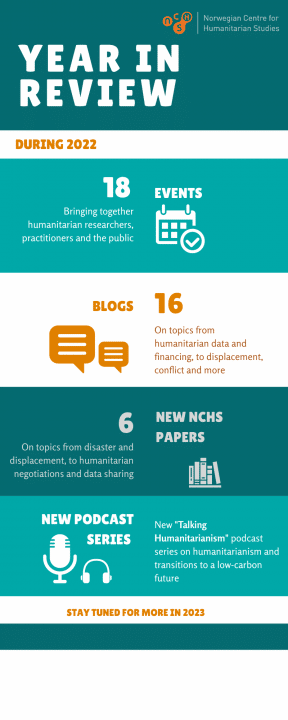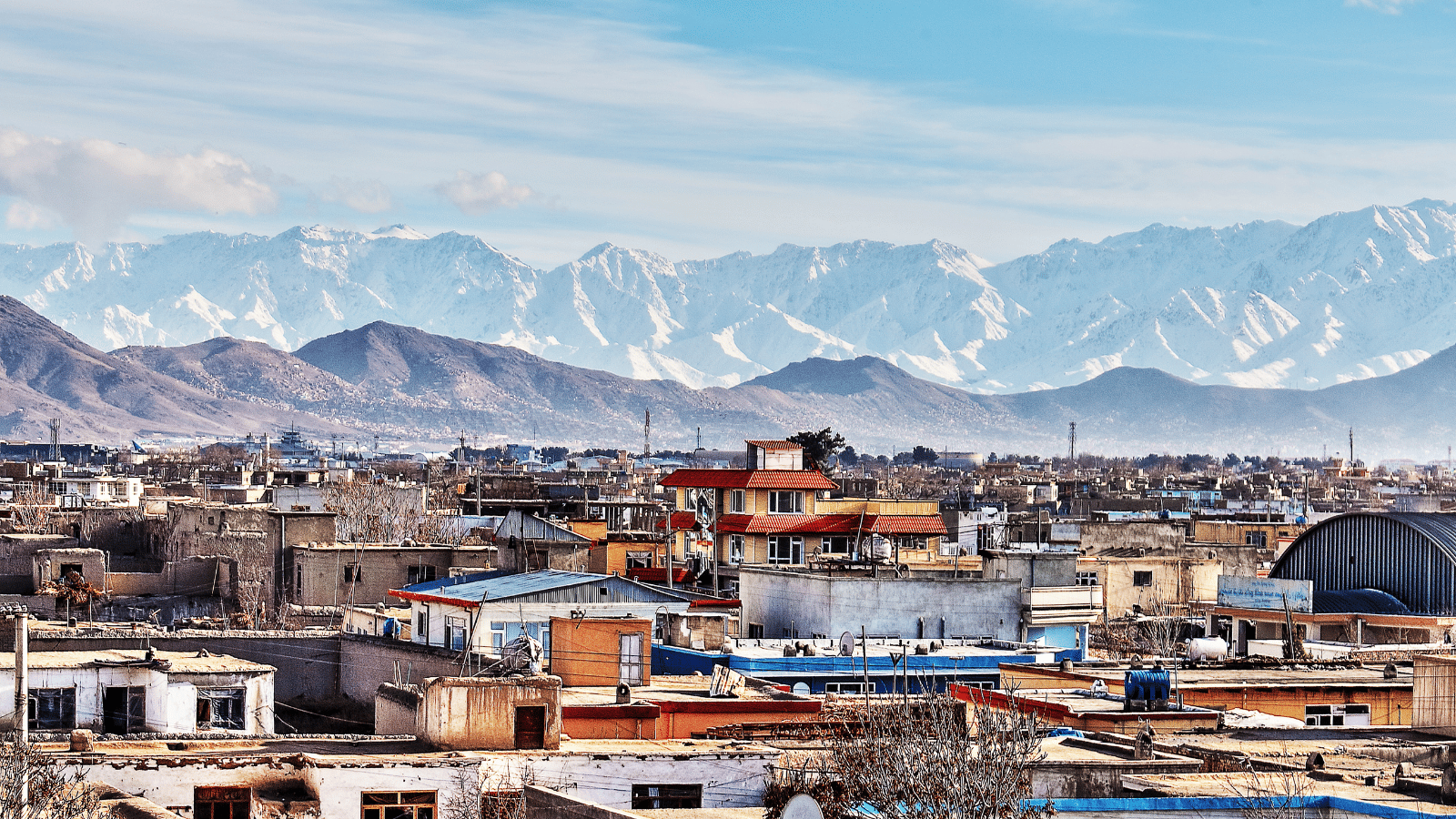 This year has been another successful year for the NCHS, with the Research Network on Humanitarian Efforts continuing to grow as a platform for connecting humanitarian researchers, practitioners and students in Norway and beyond and for facilitating discussion on humanitarian related issues.
This year has been another successful year for the NCHS, with the Research Network on Humanitarian Efforts continuing to grow as a platform for connecting humanitarian researchers, practitioners and students in Norway and beyond and for facilitating discussion on humanitarian related issues.
In 2022, the NCHS hosted or co-hosted 18 events on a range of humanitarian topics. After two years of mostly digital interaction, we were very happy to resume face-to-face events and to reconnect with many familiar faces and to also make new connections, including at the mid-year networking meeting held at the Norwegian Institute of International Affairs in Oslo.
The NCHS Annual Conference in Bergen was one of our most well attended events. We were delighted to have Michael Barnett join us to deliver the Keynote Address, ‘Humanitarianism in a Post-Liberal Age’, and Elena Fiddian-Qasmiyeh to deliver the NCHS Annual Lecture, ‘Against the Humanitarian Grain’. You can now listen to recordings of both lectures here.
This year also saw a new collaboration with the Xavier School of Management Centre for Gender Equality and Inclusive Leadership in India. Together we hosted a webinar exploring the role of gender in humanitarian diplomacy. If you missed any of our events, please head to our events page where you can find recordings of most of our previous events.
The NCHS also published 16 blogs on a variety of topics from humanitarian data, financing and aid, to humanitarian borders, forced migration and displacement. We would like to thank all of those who contributed their insights to our blog this year and we welcome your blog contributions for 2023. If you are interested in contributing to the NCHS blog, we encourage you to submit your humanitarian related blogs via our website.
We have also published six new papers in our NCHS paper series on a broad range of humanitarian related topics, including disaster and displacement response, humanitarian negotiations, data sharing between humanitarian organisations and donors and recent trends in the international humanitarian regime.
The Russian attack on Ukraine in February led to an acute humanitarian crisis, and had a significant impact on European and global politics. These events have also shaped the recent work of the NCHS and humanitarian agendas more broadly. In March, the NCHS hosted a seminar examining the humanitarian challenges arising from the war in Ukraine, where scholars and practitioners discussed how Europe should respond to the situation on a political and diplomatic level.
NCHS associates have also contributed to the ongoing analysis of the war in Ukraine, including commenting on the humanitarian consequences of the war and what the war reveals about the militarisation of Europe and humanitarian racism. NCHS associates have also examined broader impacts of the war, including impacts on aid allocation and donor priorities and food security, and new dilemmas raised when refugees flee with their companion animals.
More than one year on from the Taliban taking control of Afghanistan, the country continues to face what the UN describes as the fastest growing humanitarian crisis in recent history. How the international community responds to this and engages with the Taliban continues to be a topic of discussion in 2022. NCHS associates have contributed to the discussion, with some commentators reinforcing the importance of Norway and other Western countries maintaining a constructive dialogue with the Taliban.
Migration policies in Europe and neighbouring regions have also continued to be a topic of discussion. In March, the NCHS co-hosted an event with the Peace Research Institute Oslo that saw the UN High Commissioner for Refugees, Filippo Grandi, participate in a panel discussion on how best to respond to global displacement. The panel discussed how the international community can work together to protect and assist refugees, and to find durable solutions to increasingly complex displacement situations.
The NCHS also co-hosted a seminar looking at local and EU responses to migrants seeking refuge in Greece, and what can be learned from these responses against the background of people fleeing the war in Ukraine. Through our seed funding initiative, the NCHS also supported a workshop examining the Danish government policy to return Syrian refugees and the impact of this for the policies and practices of other Scandinavian and Middle Eastern countries.
Against the backdrop of the United Nations Climate Change Conference, commonly known as COP27, held in Egypt in November , the NCHS featured a series of blogs exploring the relationship between displaced people and the environment. The latest NCHS “Talking Humanitarianism” podcast series, also focuses on environment, discussing humanitarianism and transitions to a low-carbon future.
Looking to 2023, the NCHS will continue engaging with academics, practitioners, policy makers and the broader public on questions related to humanitarianism.
We already have some events in the pipeline for 2023 so follow our web page and social media on Facebook and Twitter for more of what is to come from the NCHS next year. And remember you can also subscribe to our newsletter for news directly to your inbox.
We look forward to engaging with you again next year!
